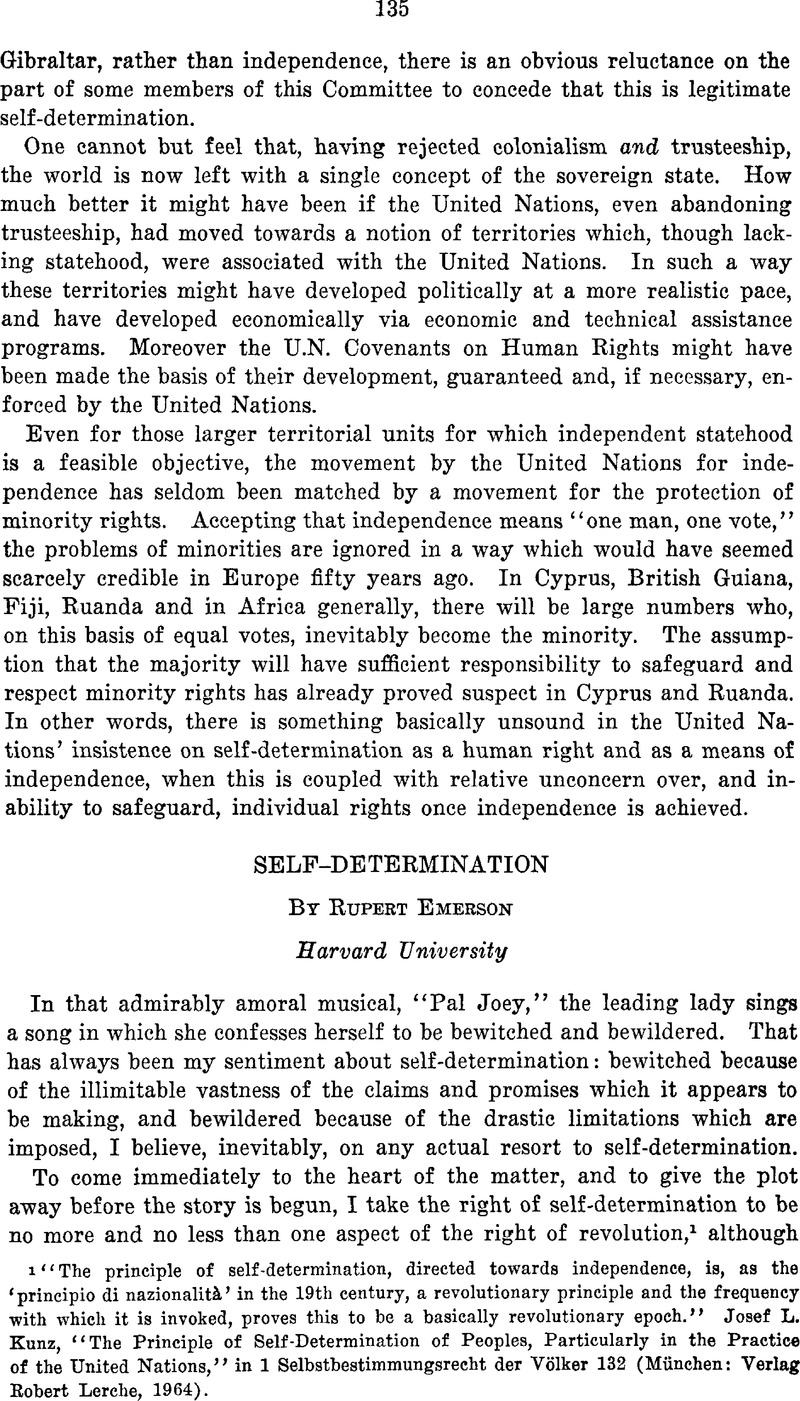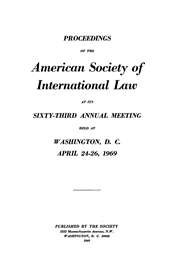No CrossRef data available.
Article contents
Self-Determination
Published online by Cambridge University Press: 27 February 2017
Abstract

- Type
- Fourth Session
- Information
- Proceedings of the American Society of International Law at its annual meeting (1921-1969) , Volume 60 , 1966 , pp. 135 - 141
- Copyright
- Copyright © American Society of International Law 1966
References
1 ‘ ‘ The principle of self-determination, directed towards independence, is, as the ‘principio di nazionaliti’ in the 19th century, a revolutionary principle and the frequency with which it is invoked, proves this to be a basically revolutionary epoch.” Josef L. Kunz, “The Principle of Self-Determination of Peoples, Particularly in the Practice of the United Nations,” in 1 Selbstbestimmungsrecht der Volker 132 (Miinchen: Verlag Eobert Lerche, 1964).
2 Rupert Emerson, “ Self -Determination Revisited in the Era of Decolonization,” Occasional Papers in International Affairs, No. 9, December, 1964 (Cambridge, Massachusetts: Harvard University, Center for International Affairs, 1964), p. 64.
3 Tins issue was flatly stated in a memorandum on the Somali question, prepared by the Kenya Delegation to the Addis Ababa Summit Conference, which stated: “The principle of self-determination has relevance where FOREIGN DOMINATION is the issue. It has no relevance where the issue is territorial disintegration by dissident citizens.” Emerson, Self-Determination 35.
4 See George Ginsburgs’ “ ‘Wars of National Liberation’ and the Modern Law of Nations—the Soviet Thesis.” 29 Law and Contemporary Problems 910-942 (Autumn, 1964).


